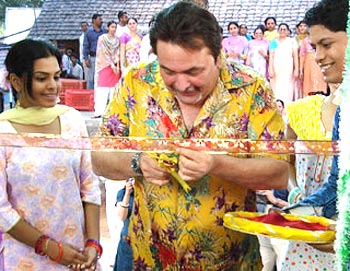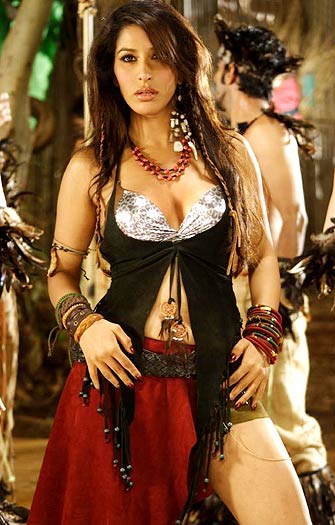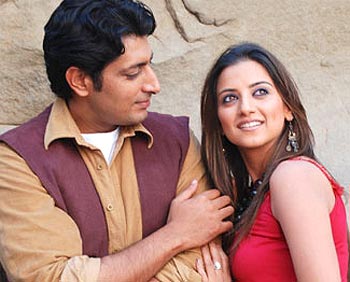 | « Back to article | Print this article |
'Chintu-ji is not borrowed'
Ranjit Kapoor has worn many hats over the course of a distinguished theatre and screen career. National School of Drama (NSD) alumni still speak with awe about his staging of plays like Woyzeck and Bichhu.
He has written the dialogue for such movies as Jaane Bhi Do Yaaro, Bandit Queen and The Rising, and composed music for others like Aadharshila.
Now, at age 61, he makes his debut as a feature-film director with Chintu-ji, a comedy in which Rishi "Chintu" Kapoor plays himself -- or a version of himself.
After decades of experience as a theatre director, why did it take you so long to make your first film?
There were offers in the mid-80s, but there was also interference by producers, and I was rigid, too
I wanted the creative freedom to do what I felt was right without being told to cast so-and-so actor or to put this many songs in the film. Having come from a theatre background, I identified more with strugglers; I didn't want big stars doing roles they weren't suitable for.
Around 1984, I was set to direct a comic thriller I had written -- Shabana Azmi, Naseeruddin Shah and Om Puri had been signed for it -- but there were too many demands from the producers and it never got off the ground. Later, Yash Chopra asked me to direct a film version of the play Ek Ruka Hua Faisla, which I had staged, but I was facing personal problems and had to back out.
So you returned to theatre?
Yes, I returned to Delhi, to NSD, and did the kind of work where I knew I could be in control. Of course, I went to Bombay when there was a decent offer -- such as writing Kabhi Haan Kabhi Na and Bandit Queen.
'I told Rishi Kapoor I wanted to do a script based partly on his life'
How did Chintu-ji come about?
It came from this idea I had that if even a moderately well-known actor goes to a small village for a shoot, he becomes an object of respect and awe. His presence can change their lives. There's potential in this situation for examining reality and illusion, the screen image and the real person.
I thought Rishi Kapoor, a wonderfully spontaneous actor, would make an interesting subject. He was very enthusiastic when I told him I wanted to do a script based partly on his life.
Around the same time, producer Bobby Bedi saw an open-air play I had directed in Pune and was impressed -- he told me "Aapne toh iss stage setting mein film bana di." So things came together.
'Chintu-ji is a comedy all right, but it isn't slapstick or farce'
How did you get Kseniya Ryabinkina -- the Russian dancer, who was in Raj Kapoor's Mera Naam Joker 40 years ago -- to appear in the film?
I was watching Mera Naam Joker [in which the young Rishi Kapoor had a small role] and it struck me that I would like to trace this actress, to make her a part of this story. We made enquiries, found out that she had been with the Bolshoi Ballet, and we finally contacted her in France. She plays a key role here in the development of Rishi Kapoor's character -- I won't reveal it, go and see for yourself!
Would you call Chintu-ji a comedy?
It's a comedy all right, but it isn't slapstick or farce; it draws on the little moments of humour in daily life. You won't find the actors ostentatiously playing a scene for laughs. And it does get emotional towards the end -- there's a bittersweet quality to it.
It's a small film, but what I'm proud about is that it's original -- no "borrowed" ideas.



